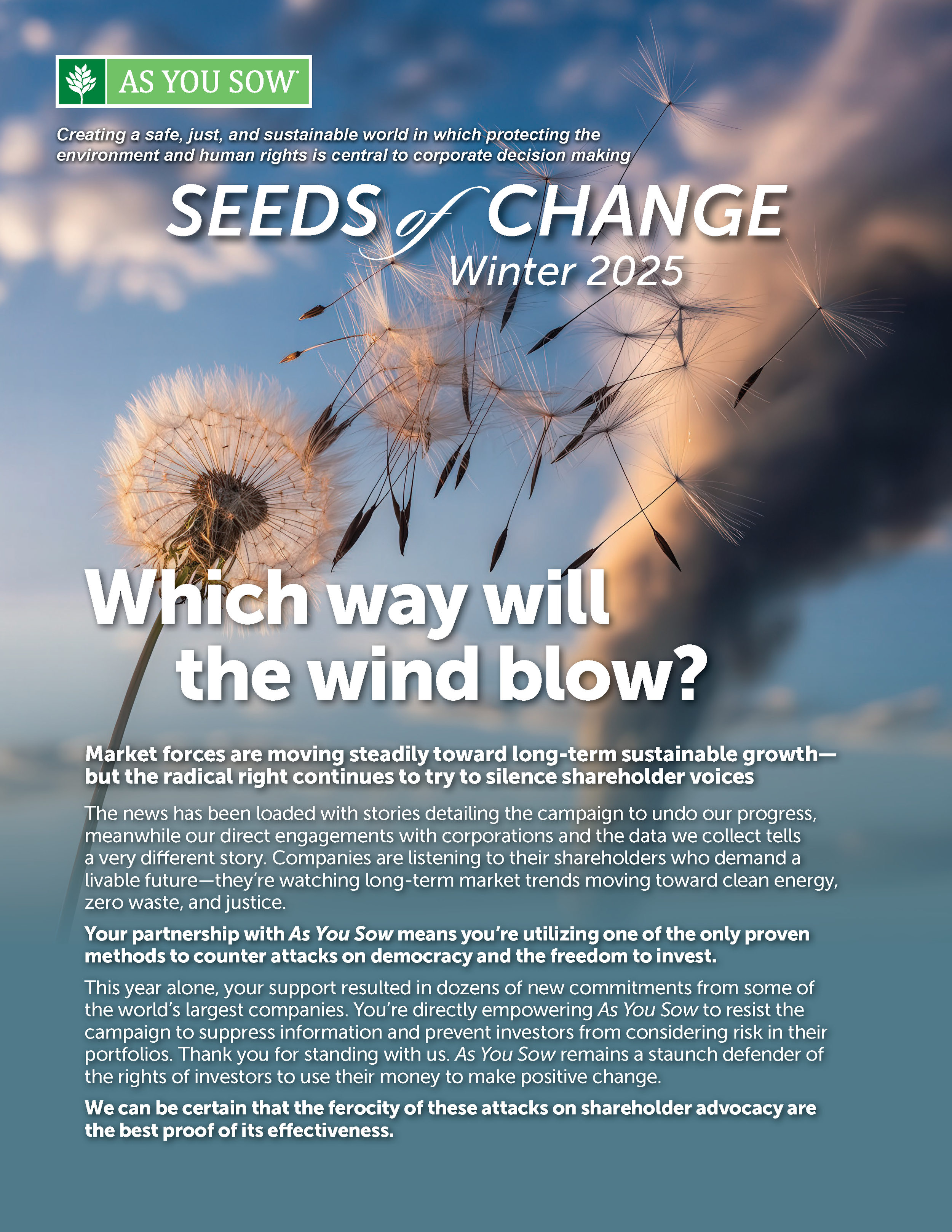Newsletters
Winter 2025
The news has been loaded with stories detailing the campaign to undo our progress, meanwhile our direct engagements with corporations and the data we collect tells a very different story. Companies are listening to their shareholders who demand a livable future—they’re watching long-term market trends moving toward clean energy, zero waste, and justice. Read more
Summer 2025
Corporations are continuing to make the positive changes shareholders are calling for, even today. From big-dollar institutional investors to anyone with a retirement account, if we keep the pressure on, together we can protect progress toward a safe, just, sustainable, and prosperous world for all.
Read more
Winter 2024
Shareholders are driving change. We see it every day. Shareholders are helping to wind down the extractive economy in favor of one that promotes corporate responsibility, resilient supply chains, and regenerative systems for healthier, more just outcomes. Read more
Summer 2024
Biodiversity is essential to all life on Earth, including humans. Without a wide and vibrant range of animals, plants, fungi, and microorganisms, we will lose the ability of ecosystems to provide the air we breathe, the water we drink, and the food we eat – the basics of survival. Read more
Winter 2023
Shareholders are paying attention and are ready and able to use their power and responsibility to secure action that supports a livable planet. Read more
Summer 2023
For over 30 years, our theory of change has focused the power of finance and shareholders to compel corporations to create a sustainable future for all stakeholders, people, and the planet. Read more
Winter 2022
157 of the world’s 200 richest entities are corporations, not sovereign countries. Corporations must be an active part of the solutions to climate change, systemic racism, and environmental justice. You’re making that happen. Read more
Summer 2022
Thirty years ago, As You Sow began its shareholder advocacy, pursuing corporate accountability, financial transparency, and a safe, just, and sustainable world for all. Read more
Winter 2021
98% of General Electric shareholders voted in favor of our shareholder resolution… Read more
Summer 2021
Harness Your Economic Power. Now, Thanks to YOU, Prison Free Funds is a reality. Read more
Winter 2020
Black Lives Matter is the largest social movement in the history of this country. Corporations are making statements of support - but statements . . . Read more
Summer 2020
If there is one takeaway from the trauma of COVID-19, it is that that we now have dramatic proof that SCIENCE = LIFE and ignorance... doesn’t. Read more
Winter 2019
Because of you, Duke Energy — the biggest power utility in the U.S. — committed to Paris compliant climate goals. Read more
Summer 2019
Do you know what’s lurking in your mutual funds? You may be shocked to find out what you actually own—especially if you have a company-managed retirement account. We certainly were! Read more
Winter 2018
You never know what it will take to get a big corporation’s attention. So you have to keep the pressure on. Starbucks shareholders . . . Read more
Summer 2018
With a 30% shareholder vote on our shareholder resolution, McDonald’s investors told the company they wanted it to quit its polystyrene habit. Read more

















